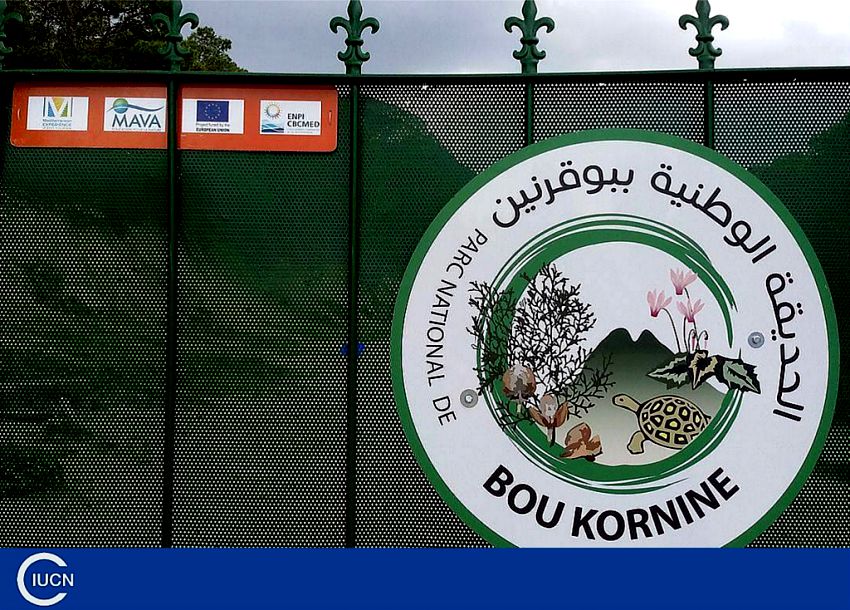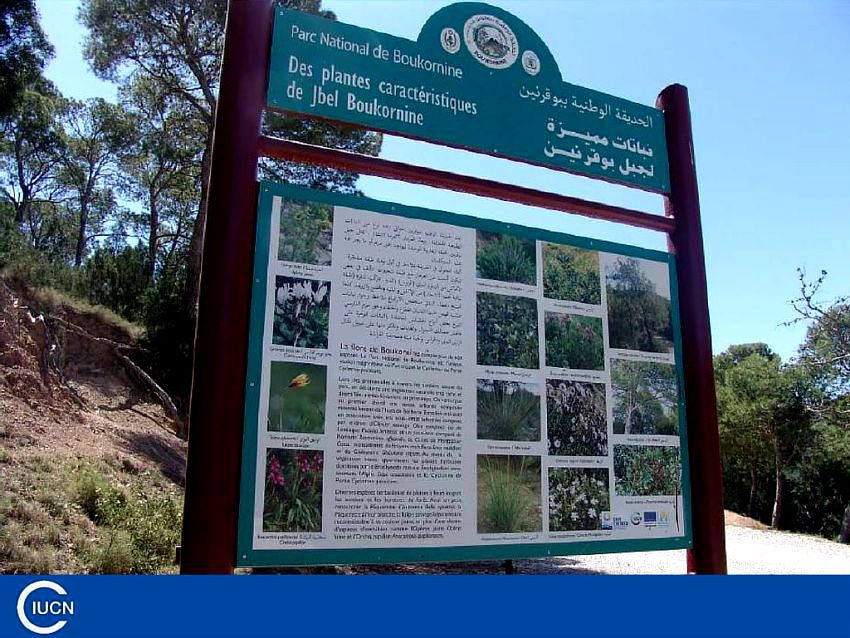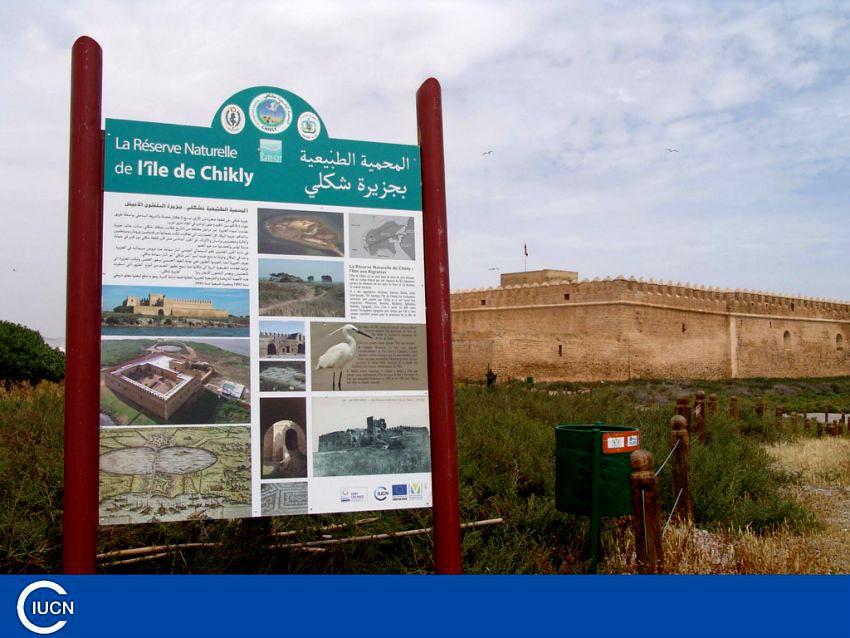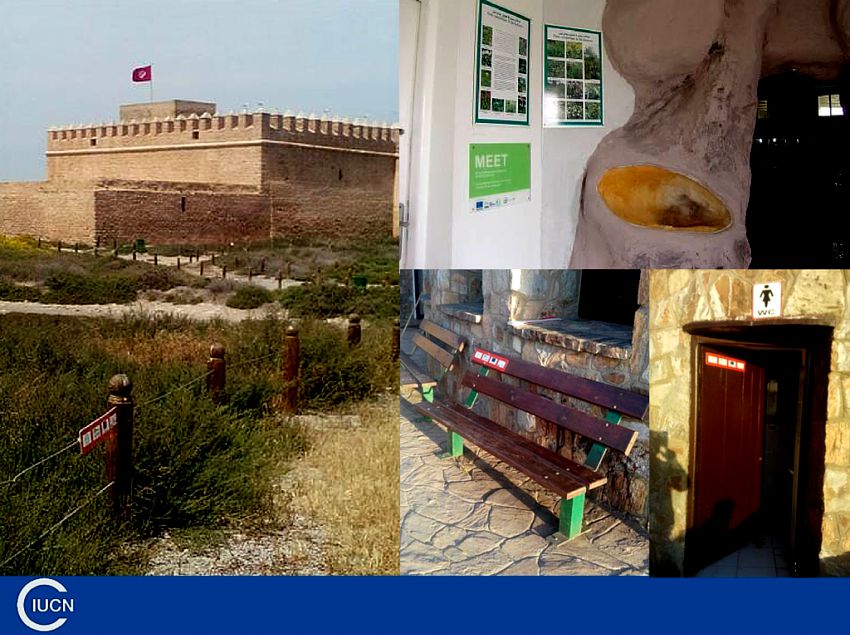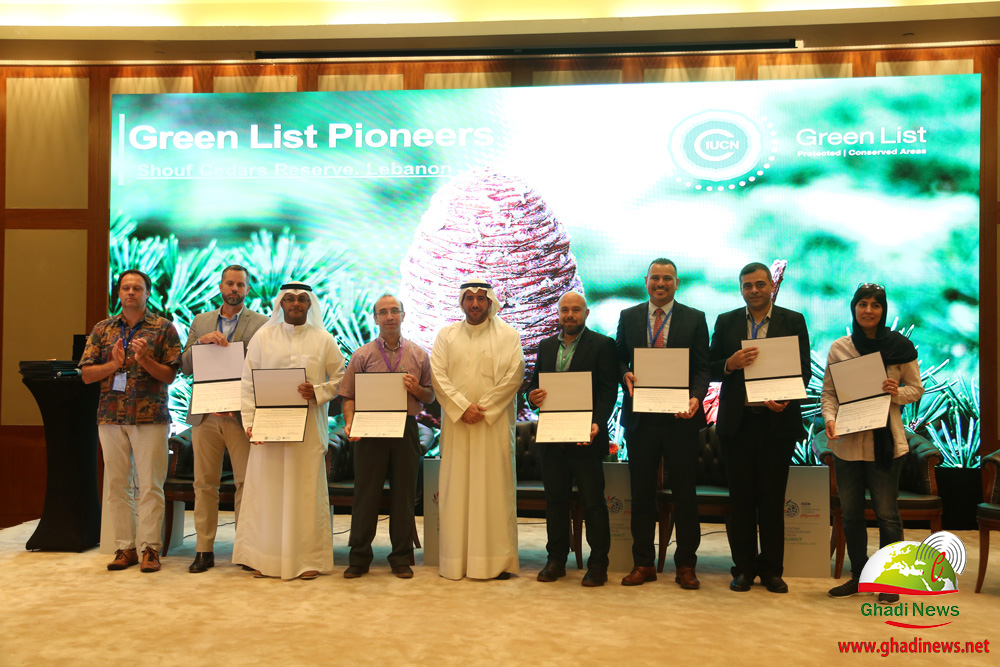Implementing ecotourism activities in Tunisian protected areas
Three protected areas in Tunisia, Ickheul, Boukornine and Chikly Island, have been the last pilot actions developed within the Mediterranean Experience of Ecotourism project (MEET), thanks to the partnership convention between the Direction Général de Forêt of Tunisia and the IUCN Centre for Mediterranean Cooperation. In the three areas, the project allowed the implementation of different actions such as the drafting of an ecotourism integrated strategy as well as two eco-tours, and the improvement of their facilities for tourists.
The MEET Pilot action was a strong step ahead for ensuring tourism in the three protected areas can be a feasible and sustainable option.
Chikly island
A plan of ecotourism in the Chikly Island to properly receive and to minimize tourist impact was developed. The paths and stairs to the Island were rehabilitated and informative and interpretation panels designed and installed in the most tourism sensitive areas. Chikly Island is a natural lagoon located between Tunis and the Mediterranean Sea. The lake covers a total of 37 square kilometers. The northern part of the lake includes the small island of Chikly of only 3.5 hectares, the site of a Spanish fort and a former Roman citadel, and since 1993 declared a nature reserve and a national cultural. The islet has never been officially open to tourism.
Ickheul National Park
Ickheul National Park offers exceptional possibilities for the development of ecotourism thanks to its landscape diversity, but also by its ornithological fame. For these characteristics, Ickheul had been home to a variety of interventions aimed at boosting ecotourism and sustainable development in the area.
Thanks to MEET Pilot action an inventory of the ecotourism potential of the area was developed and an ecotourism integrated strategy for the territory agreed and defined in collaboration with the local community. Besides, to make sure tourist were properly received and to minimize their impact, the Eco-museum was rehabilitated, garbage bins and benches installed in the area and informative and interpretation panels designed and installed in the most tourism sensitive areas.
Boukornine National Park
The Boukornine National Park is a small park with an interesting ecotourism potential, due to its proximity to the country’s capital (around 20km south), the presence of endangered flora like the Persian cyclamen and fauna, including the Mountain gazelle. There are hiking trails leading to various caves however, visitation represents a threat to the geology of the caves and impacts to its fragile fauna, the Bou Kornine Mount, or to the Aïn Zargua spring, as well as a small museum. The park has a very limited budget and faces many impacts from visitors –mainly one-day visitors from Tunis during weekends and school holidays.
Thanks to MEET Pilot action, a visitor’s management plan for the proper management of the area was implemented as well as a section on Boukornine in a plan for the development of ecotourism in the three protected areas of Tunisia participating into MEET project.
In line with the actions developed in Ichkeul, the toilets and conference room of the Eco-museum in Boukornine were rehabilitated and informative and interpretation panels designed and installed in the most tourism sensitive areas as well. The area around Ain Zarghua spring was also equipped.
Finally, an two eco-tours involving the three areas were designed and tested, despite the difficult socio-political situation of the country.
About the Meet project
The MEET project supported 25 protected areas in the Mediterranean region to plan for sustainable tourism development and improve their ecotourism offer and is funded by European Union (ENPI-CBC Mediterranean Programme 2007-2013). Its aims are improve the cooperation between Mediterranean Protected Areas in the sustainable tourism field and to develop an integrated strategy in order to set an eco-tourism development model for the Mediterranean region. The project is led by Federparchi (Italy), and IUCN-Med is a partner in the consortium, in charge of the coordination of the MEET Network and the pilot actions in Tunisia.
For further information Carla Danelutti
